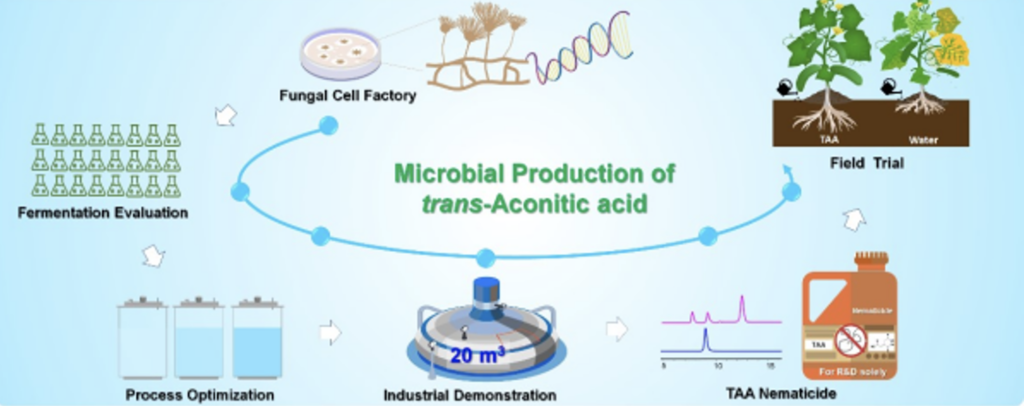https://www.sciencedirect.com/science/article/abs/pii/S1096717623000897?via%3Dihub
https://www.cas.cn/syky/202306/t20230620_4898153.shtml
Trans-aconitic acid, a C6 organic acid with three carboxyl groups and one unsaturated double bond, has good effects in agricultural nematode disease control . Traditionally, transaconitic acid is mainly obtained by small amounts of extraction from sugar cane, and the developed chemical synthesis methods are complicated, with many by-products and low yields.
The Microbial Manufacturing Engineering Center of Qingdao Institute of Bioenergy and Processes, Chinese Academy of Sciences has designed and constructed a microbial cell factory for efficient synthesis of trans-aconitic acid, and developed a fermentation process and completed the engineering scaling-up validation, which realized the efficient green biomanufacturing of trans-aconitic acid and solved the key problem of raw material accessibility.
Aspergillus oryzae was selected as the chassis cell, engineered by synthetic biology, and a fermentation process was developed in 5- and 20-ton fermentation scale. The yield of trans-aconitic acid in 98 hours of fermentation reached 60 g/L.
Plant parasitic nematodes are agricultural pests that cause economic losses in agriculture and have limited means of control. Field trials of cucumber nematode control based on fermentation-produced trans-aconitic acid were carried out. The results showed that the damage caused by root-knot nematode disease was effectively improved by using trans-aconitic acid.

